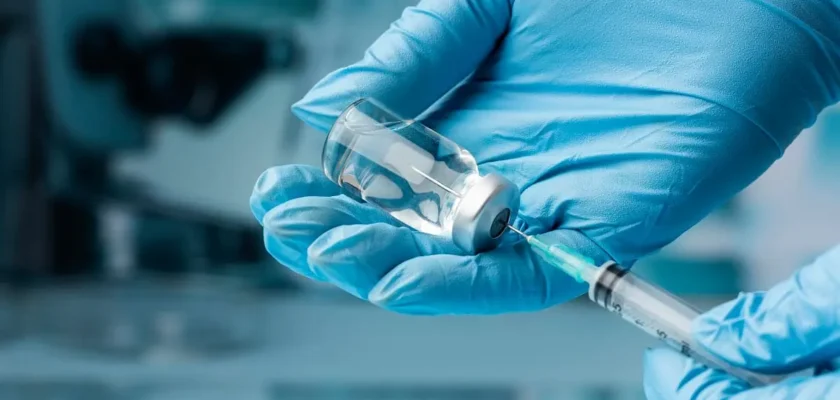Ketamine is a dissociative anesthetic that can be misused recreationally, leading to potential dependence and addiction. When individuals who have been using ketamine regularly decide to stop or reduce their use, they may experience withdrawal symptoms.
It’s important to note that is ketamine addictive can vary in severity and duration depending on factors such as the duration and frequency of use, individual physiology, and the presence of any co-occurring conditions.
Here is some information regarding ketamine withdrawal symptoms, timeline, and detox treatment:
Ketamine Withdrawal Symptoms:
- Psychological Symptoms: These may include anxiety, depression, irritability, mood swings, difficulty concentrating, and cravings for ketamine. Some individuals may also experience vivid dreams or nightmares.
- Physical Symptoms: Ketamine withdrawal can also lead to physical symptoms such as insomnia, fatigue, headaches, increased heart rate, muscle aches, and tremors.
- Cognitive Symptoms: Individuals may experience cognitive impairments such as difficulties with memory, attention, and decision-making during withdrawal.
Ketamine Withdrawal Timeline:
The onset and duration of ketamine withdrawal symptoms can vary from person to person. Generally, withdrawal symptoms may start within 24 to 72 hours after the last dose and peak around the first week. Symptoms may gradually subside over the following weeks, with some individuals experiencing lingering effects for several months.
Ketamine Detox Treatment:
Ketamine withdrawal can be challenging, and it is recommended to seek professional help for a safe and supportive detox process. Detox treatment for ketamine withdrawal may involve the following:
- Medical Supervision: It is crucial to have medical professionals monitor the withdrawal process, especially for individuals with severe dependence or those experiencing significant physical or psychological symptoms. They can provide appropriate care, manage complications, and ensure the safety and well-being of the individual throughout the detoxification process.
- Supportive Care: During detox, individuals may benefit from a supportive and structured environment. Residential treatment facilities or inpatient programs can provide round-the-clock care, therapy, and support to manage withdrawal symptoms and begin the recovery process.
- Medication-Assisted Treatment (MAT): In some cases, medication may be used to alleviate specific withdrawal symptoms or manage cravings. However, there are currently no FDA-approved medications specifically for ketamine withdrawal. Medications used for other substance withdrawals, such as antidepressants or anti-anxiety medications, may be prescribed to address associated symptoms or co-occurring mental health conditions.
- Therapeutic Support: Counseling and therapy are integral components of the detox and recovery process. Individual therapy, group therapy, or behavioral therapy can help individuals address underlying issues, develop coping strategies, and establish a foundation for long-term recovery.
- Aftercare Planning: Following detox, it is crucial to develop an aftercare plan to support ongoing recovery. This may involve transitioning to outpatient treatment, participating in support groups or counseling, and accessing resources for continued support and relapse prevention.
- Psychological Support: Ketamine withdrawal can be emotionally challenging, and individuals may benefit from psychological support during this time. Therapeutic interventions such as cognitive-behavioral therapy (CBT), motivational interviewing, or support groups can help individuals address underlying psychological issues, develop healthier coping mechanisms, and manage cravings.
- Nutritional Support: Ketamine misuse can disrupt eating patterns and nutrition. During the detox process, it’s important to focus on restoring proper nutrition and addressing any nutritional deficiencies. Nutritional counseling or guidance from a registered dietitian can help individuals establish a balanced and healthy eating plan.
- Sleep Management: Insomnia and sleep disturbances are common during ketamine withdrawal. Establishing a regular sleep routine, practicing good sleep hygiene, and seeking professional guidance for sleep management can be beneficial during this period.
- Holistic Approaches: Some individuals find that incorporating holistic approaches into their detox and recovery process can enhance overall well-being. Techniques such as mindfulness meditation, yoga, acupuncture, or art therapy may provide relaxation, stress reduction, and additional coping tools.
- Individualized Treatment: Each person’s experience with ketamine withdrawal is unique, and an individualized treatment approach is crucial. Treatment providers should conduct a comprehensive assessment to identify any co-occurring conditions, tailor the treatment plan to the individual’s specific needs, and regularly reassess and adjust the approach as necessary.
- Dual Diagnosis Treatment: If an individual has a co-occurring mental health disorder alongside ketamine addiction, integrated treatment for both conditions is essential. Dual diagnosis treatment addresses the interconnectedness of mental health and substance use, providing comprehensive care for better long-term outcomes.
Keep in mind that ketamine withdrawal is difficult, and seek expert help if you want to enhance your chances of staying safe and making it through the process. The detox and rehabilitation process may be made easier with the help of medical experts, addiction specialists, and treatment centers.

